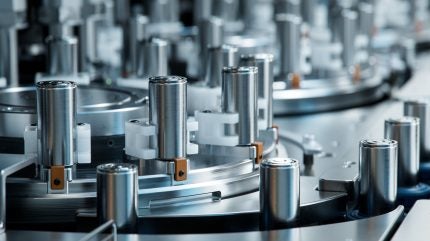
Metal processing company Lithion Technologies has completed construction of its first commercial critical mineral extraction plant, in Canada.
Located in St-Bruno-de-Montarville, near Montreal, the Lithion Saint-Bruno facility is the first of its kind in North America’s north-east and is currently in the commissioning phase.
The plant, which currently employs a team of 20, is expected to expand its workforce to 60 at full capacity.
This facility is part of Lithion’s broader vision to power the world with the greenest batteries by establishing a network of such facilities globally.
Following the opening of Lithion Saint-Bruno, the company plans to inaugurate a storage facility in the US and is in talks to replicate plants like Lithion Saint-Bruno in the country.
It aims to provide a turnkey service to its partners, streamlining the complex and costly aspect of lithium-ion battery recycling.
Access the most comprehensive Company Profiles on the market, powered by GlobalData. Save hours of research. Gain competitive edge.

Your download email will arrive shortly
We are confident about the unique quality of our Company Profiles. However, we want you to make the most beneficial decision for your business, so we offer a free sample that you can download by submitting the below form
By GlobalData
Lithion’s battery recycling involves a two-step process.
The first step, taking place at Lithion Saint-Bruno, involves extracting critical minerals concentrate, or black mass, from spent batteries and non-conforming production products.
Black mass contains valuable elements such as lithium, nickel, cobalt, manganese and graphite.
The subsequent phase involves a hydrometallurgy process to separate and purify these materials, ensuring they meet the highest purity standards for reintroduction into new battery production.
Lithion is currently in the process of selecting a site for this hydrometallurgy plant.
Lithion president and CEO Benoit Couture said: “It is a major milestone towards the realisation of our dream of sustainably closing the loop of battery materials.
“And this is just the beginning. We will build more recycling plants, supplied by a network of battery collection and storage facilities, across Canada, the United States and Europe to ensure the energy transition is a sustainable solution for the generations to come.”
Sign up for our daily news round-up!
Give your business an edge with our leading industry insights.




